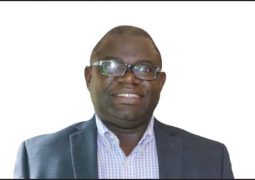Coronavirus or COVID-19 is a pandemic defining the global health crises and the greatest challenge we face currently. The outbreak of the new strain of coronavirus was first reported in Wuhan in China in early December 2019. As of the time of writing this article, there are 5,612,894 cases of the virus with 348,473 deaths and 2,388,650 recoveries. The increasing number of new cases shows that the disease is highly contagious and as such some measures such as quarantine and isolation are taken to contain the virus.
Countries including The Gambia are racing to slow down the spread of the virus by carry out quarantine, testing, isolation, treating patients, contact tracing, closure of borders and airports and cancellation of public gathering such as schools, markets, ceremonial parties etc. through the implementation of the state of public emergency.
The first case of COVID-19 in The Gambia was reported on 17th March 2020. The Gambia currently has 24 confirmed cases under isolation and treatment, 69 under quarantine, 10 active cases and 13 recovered and were discharged.
The Gambia’s ministry of health combines measures to control and contain the virus by the principles of quarantine and isolation. Individuals or group of persons suspected for COVID-19 are being quarantine for 14 days, during this period samples of the individuals are taken for laboratory analysis. After the 14days those who test negative are discharged and those that are positive are taken into isolation and treatment at the sanatorium in Banjul.
Persons at high risk of having been exposed during international travels and symptomatic persons who have been reported or identified by 1025 call or health personnel are also taken to quarantine. In some cases, those label as low risk during contact tracing can self-quarantine themselves at home provided that they adhere to the preventive measures of social distancing. Individuals who fail to comply are taken into designated centers.
Whilst isolation serve almost the same purpose as quarantine, isolation centers are reserved for those who are sick and tested positive for COVID-19. In The Gambia COVID-19 positive cases with asymptomatic, mild and severe infections are isolated in treatment centers for medical support and to also reduce the rate of cross infections.
The ministry of health ensures that quarantine and isolation sites have access to medical screening. Medical teams conduct daily checkups to monitor the health status of those under isolation. Carry out symptom screening and daily temperature checkups, to access and manage elements and existing health conditions, to identify patients who required referral to hospitals and ensure that these referrals are conducted smoothly, access to after-hours medical care and emergency transport for isolation facilities, access to psychiatric, pharmacy and infection control and prevention on isolation centers.
The ministry of health ensures that there are smooth and standard operation procedures in isolation centers for medical personnel in carrying out their roles and responsibilities, they also prepare working roosters for medical staffs, daily monitoring, surveillance and transfer of patients if necessary.
Persons under isolation are discharged after they have fully recovered and their results shows that they are free from the virus. Upon discharged a certificate is issued to the person confirming the individual’s completion of isolation and treatment and as such they are expected to make their own transport arrangements.
In The Gambia the principle and concept of isolation is working effectively as we registered 19 cases from our quarantine centers without no local transmission and 13 persons recovered and were discharged from the isolation centre.
Written by Ndey Oumie Secka & Ebrima M. Jallow





